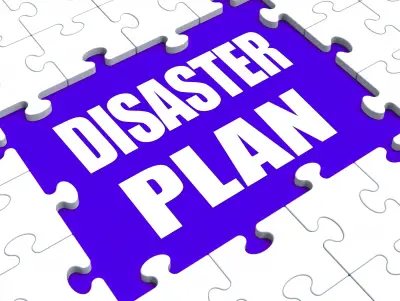How’s Your Disaster Recovery Plan? 5 Things To Consider

What if the worst were to happen to your business? It isn’t nice to contemplate, but it’s something we should all consider. Whether a man-made disaster in the shape of a criminal attack or a natural disaster such as a flood or earthquake, such events can be pretty traumatic. It’s at times like these when we can ill-afford to panic – we need our business to get back on its feet quickly so that we can get back to the business of earning money.
This is where a disaster recovery plan comes in. This is the way you prepare for recovering software and data should the worst happen. Many businesses have such a plan, but how many have a plan that works? Here are five things to look at when considering your plan:
What is the biggest threat?
Disastrous events are very rarely predictable yet businesses can consider the things that are most likely to cause them issues. Any business on a flood plain should prepare for the impact of their premises being underwater, for example. The Federation of Small Businesses recently estimated that 75,000 smaller businesses are at risk of flooding in the UK. Your disaster recovery plan should also fit into a wider contingency plan for your business that covers things such as ‘loss of key staff’.
What data is most at risk?
What data do you have as a business? Where is it stored and how is it accessed? You need to know what you have, where you have it and how this is backed up. Crucially, you should not be left searching for the answers to these questions in your hour of need. The purpose of the plan is to make sure that these answers are ready to lift off the peg and speed up your recovery.
Are staff clear about their role?
It’s no good having a plan in place if no-one can use it. Key members of staff must know how to access and enact the plan if the moment arrives. Individual staff members must also be trained to know about their role, with refresher sessions every now and again to ensure any new employees are clear about how to act.
Can you use the cloud to your advantage?
If your data is securely stored off-site then you are already at an advantage. Many hosting companies allow you to tap into the power of the cloud, ensuring that your information is kept safe and sound if anything happens to your business. Explore the packages offered by the likes of 100TB and you’ll see that there are a number of options open to you with safety and security as paramount. For more information about how to use the cloud in your disaster recovery plan, read Brien Posey’s six-point guide on TechTarget.
Have you tested your plan?
Every business has a fire drill from time to time to ensure all employees know how to evacuate a burning building. The same logic really ought to be applied to other aspects of your disaster recovery plan. Only through testing can you pinpoint any gaps in your plan that can be addressed before they become real life problems that need to be addressed.
PS: This is a sponsored post, views expressed here are solely those of sponsor.
